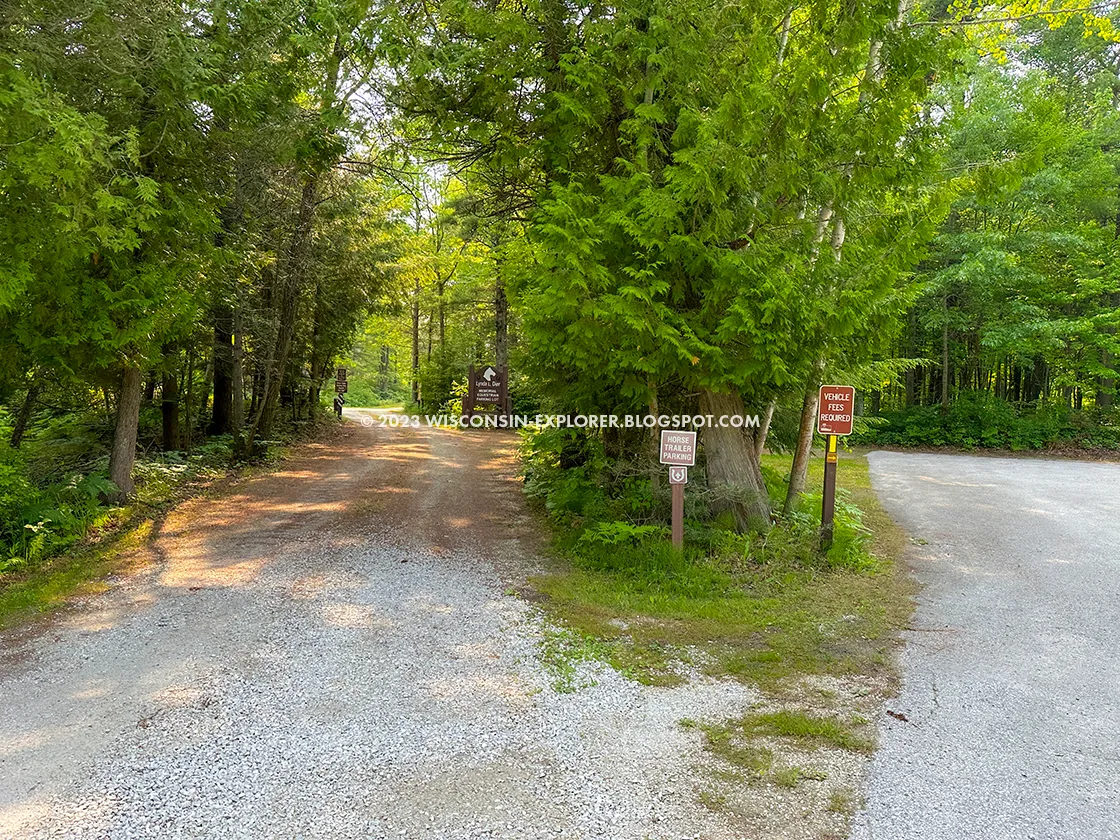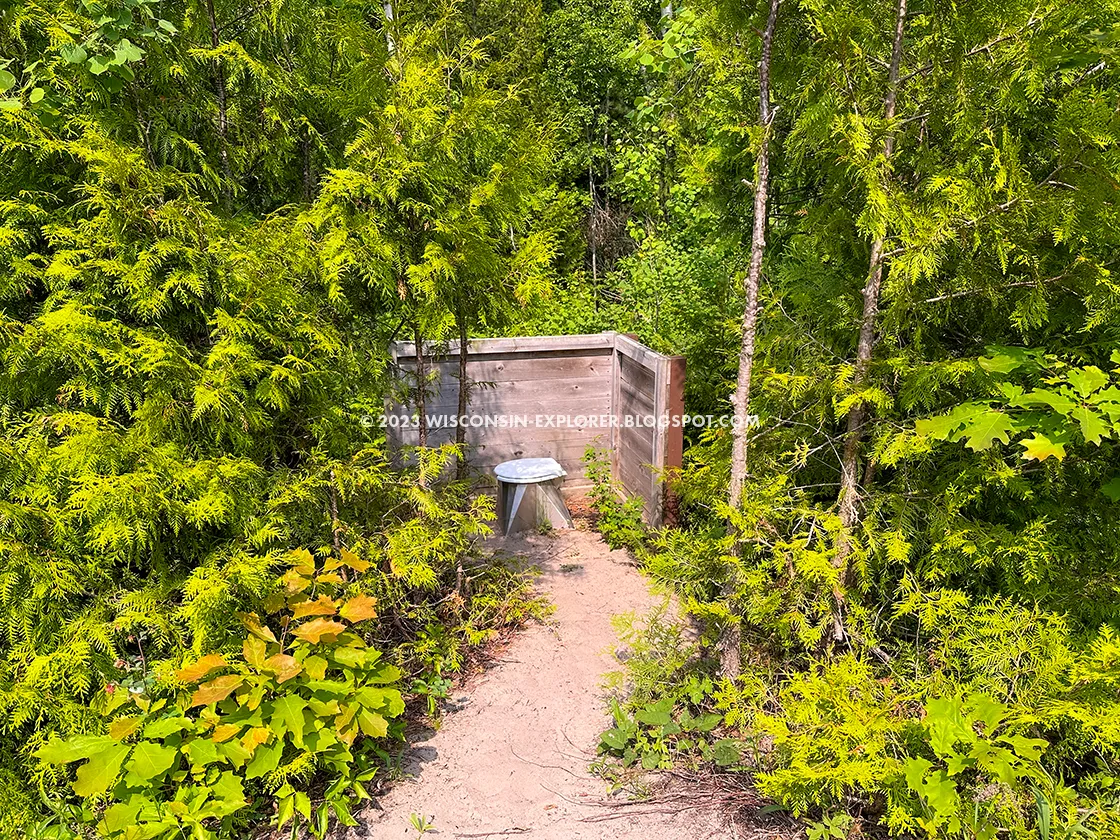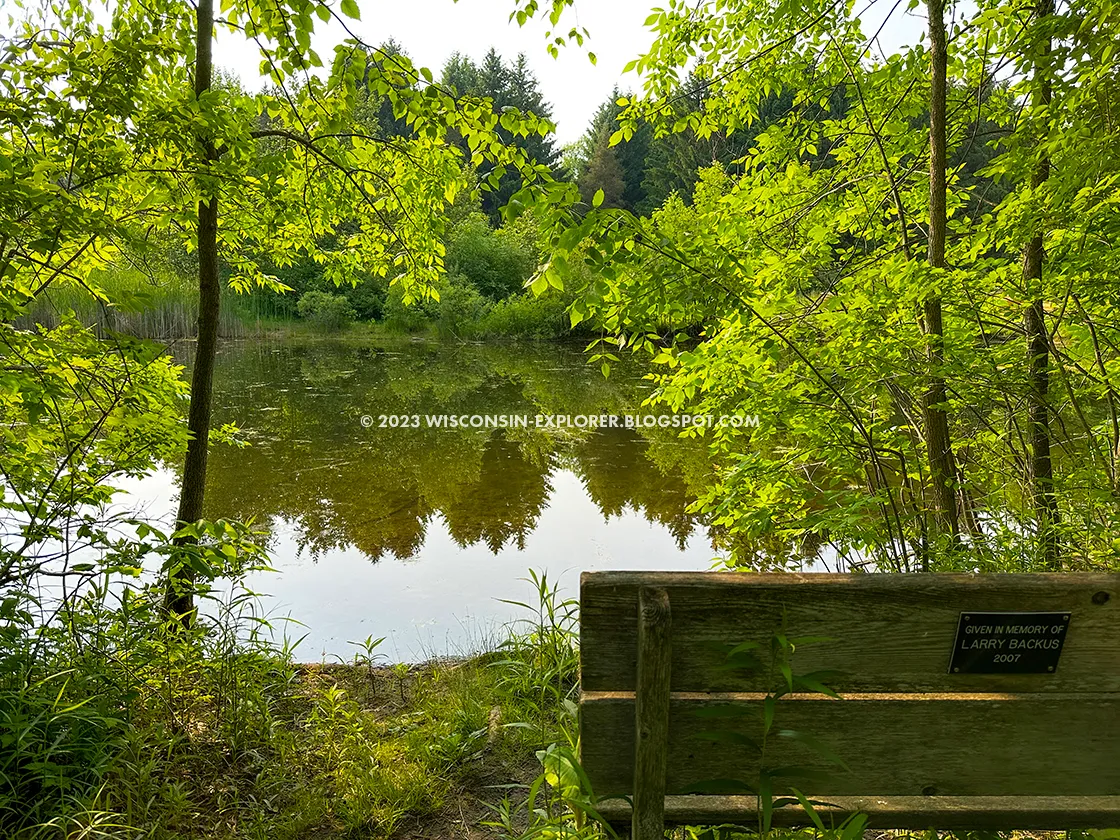The Point Beach Segment of the Ice Age Trail is a 10-mile point-to-point footpath in the Point Beach State Forest in Two Rivers, Wisconsin.
Impressive scenery on this trail includes sand dunes, beaches on Great Lake Michigan, and deep pine forest.
This segment connects directly to the Two Rivers Segment at its south trailhead. It is separated by 5.3 miles along connecting road routes from the Mischicot segment from its north trailhead.
The Point Beach Segment is popular and well-served with hiking amenities, including multiple large parking lots, drive-in and hike-in reservable campsites, water, restrooms, and beach access.
{tocify} $title={Table of Contents}
$ads={1}
advertisement

|
| Sand Dune along the Ice Age Trail Point Beach Segment |
The Point Beach Segment is the perfect hike for a hot mid-summer afternoon. I was delighted by the range of scenery, from deep woods to sand dunes and beaches.
I found parking at the Rahr School Forest, with a side trail to the Ice Age Trail near the north trailhead. From there, I hiked south toward the state forest campground. This part of the trail includes a long boardwalk over woodland wetlands and an easy trail over calm terrain that bends in long arcs around sand dunes captured by a white pine forest.
Near the center of this segment, the trail leads to a large parking lot. I followed the parking lot road to the main entrance to the State Forest. Past a white crushed stone bike trail, I found the Ice Age Trail heading south along a cedar-lined ridge between swales.
The trail continues in a straight, flat, and even line for several miles before jogging over to the beach, where there are two reservable primitive hike-in campsites. Each site has a picnic table and fire pit and is sheltered by a large sand dune from the lake winds.
Further along to the south, the trail joins the crushed stone multi-use trail. It cuts over to the west to navigate over the mouth of Molash Creek. The trail then diverges from the bike trail and continues along the beach to an unceremonious trailhead at the end of a dead-end residential drive.
This long trail is a peaceful respite in eastern Wisconsin. You can enjoy listening to the waves come ashore and the birds chirp in a rich and diverse forest.

|
| Pine forest prevails along the Ice Age Trail Point Beach Segment |
Ice Age Trail Point Beach Segment
COUNTY
MANITOWOC
COMMUNITIES
TWO RIVERS, TWO CREEKS
TOTAL MILES
10-MILES POINT-TO-POINT
DIFFICULTY
EASY
LOWEST ELEVATION
570 AMSL (LAKE MICHIGAN)
HIGHEST ELEVATION
660 AMSL (RAHR MEMORIAL SCHOOL FOREST)
CUMULATIVE TOTAL ELEVATION GAIN
1000 FT
NEXT ICE AGE TRAIL SEGMENT WESTBOUND
TWO RIVERS SEGMENT
NEXT ICE AGE TRAIL SEGMENT EASTBOUND
MISHICOT AND EAST TWIN RIVER SEGMENTS
Directions and Trail Map
If viewing on a mobile device, open the trail map above to load into Google Maps App by touching the expand rectangle in the upper right corner.
Address for your GPS: 9214 County Rd O #2, Two Rivers, WI 54241
| coordinates: 44.21184410973126, -87.51577804644027 |
| From Milwaukee | 1.5 Hours |
| From Madison | 2.5 Hours |
| From Green Bay | 45 Minutes |
| From Wausau | 2 Hours |
| From Minneapolis | 5 Hours |
| From Chicago | 3 Hours |
Photos

|
| Parking for the Ice Age Trail is across County O from the main Point Beach State Park entrance next to the horse trailer parking |

|
| The primary parking lot is large and across Couonty Highway O from the main Point Beach State Park entrance. |

|
| Most of the trail is single track hardwood forest |

|
| The trail passes through an older pine plantation |

|
| An outdoor classroom in the Rahr School Forest |

|
| A long boardwalk in a woodland wetland in the Rahr School Forest |

|
| The bike trail works for making your Ice Age Trail hike into a loop |

|
| dunes, swales, and ridges create wetlands inland from the lake edge |

|
| The Ice Age Trail remote / rustic campsite is reservable and along the trail. |

|
| A view of the Ice Age Trail remote campsite on the trail |

|
| The walkway down to the beach from the remote campsites |

|
| The privy shared by the two remote campsites |

|
| The paddle-in campsite is also reservable. Mostly this site is used by hikers |











